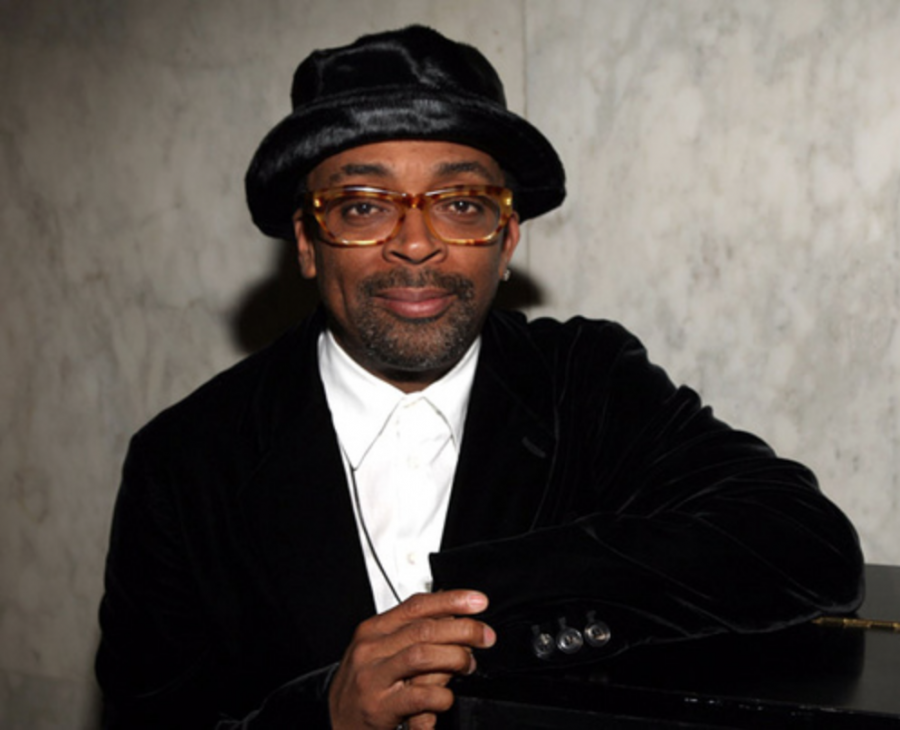Hashtagging for a More Diverse Oscars
NYU alumnus, Spike Lee, is one of the several prominent members of the film industry boycotting the Oscars this year.
January 25, 2016
Take a look at the recently announced Oscar nominees for acting in 2015 and you’ll see familiar faces that have one thing in common—they’re all white. For the second year in a row, the Academy Awards failed to nominate a single actor of color across its 20 nominees in four acting categories. In response, the hashtag #OscarsSoWhite has been created to demand more diversity.
The Academy’s actions especially in a year jam-packed with exceptional films and performances from talented filmmakers and actors of color, are infuriating and unacceptable but not at all surprising. Throughout the Academy’s 88-year history, it has consistently failed to acknowledge and reward those outside the white, male-dominated Hollywood establishment.
It took the Academy 82 years to honor a female director with the award for Best Director. That win came for Kathryn Bigelow (“The Hurt Locker”) in 2009, and she remains the only woman with the award. No other female director has been nominated since.
Women are not the only ones who have had a difficult time gaining recognition at these prestigious awards shows. Last year there was outcry when the Academy failed to nominate director Ava Duvernay and actor David Oyelowo for their masterful Martin Luther King Jr. biopic “Selma.” This year, instead of recognizing the films of black artists, the Academy solely rewarded the white people involved in their creation. Sylvester Stallone was nominated for his role in “Creed” while star Michael B. Jordan and director Ryan Coogler were snubbed. The white writers of “Straight Outta Compton” were nominated for their screenplay, while the stars of the N.W.A. biopic were left out. To stay relevant, the Academy should reward black filmmakers, not just the white people featured in their films.
It’s difficult for an institution to emphasize diversity and highlight minority voices when its membership has more old white men than the U.S. Congress. Of the Academy’s voting members, 93 percent are white and 76 percent are male, with the median age being 63.
The lack of diversity this year has triggered a huge backlash on social media with the hashtag #OscarsSoWhite. Additionally, multiple black celebrities including Jada Pinkett Smith, Will Smith and Spike Lee have stated that they are boycotting the Oscars ceremony in February.
In response, Academy president Cheryl Boone Isaacs has announced sweeping policy changes including new rules for maintaining membership status and a campaign to expand the voting body to new members who “represent greater diversity.”
Actions need to be taken at an industry-wide level to create more opportunities for diverse and original stories told by filmmakers and actors of color. The rule changes undertaken by the Academy are a step in the right direction but should not be the end. Award shows are often infuriating exercises in rewarding the wrong people. However, they are also important instruments for assessing industry trends and providing a higher profile for smaller, independent films—just ask the crowds who will be heading to see “Room” and “Brooklyn” in the coming weeks.
#OscarsSoWhite brings a longstanding industry problem to the forefront of awards conversations. There should be more films like “Creed” that showcase stories told by people of color.
A version of this article appeared in the Jan. 25th print edition. Email Zach Martin at [email protected].



























































































































































